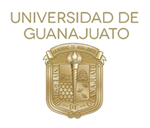
Guanajuato, Gto., July 9, 2019.- Education is fundamental to progress in all areas of society, so Dr. Sylvia Catharina van Dijk Kocherthaler believes that the key to quality education is the development of human potential, which requires an environment emotionally secure, adequate stimuli and challenges that are achievable.
The PhD in Education Sciences from the Autonomous University of the State of Hidalgo and is currently Coordinator of the Master's Degree in Educational Research of the Department of Education of the University of Guanajuato mentions that there must be "an education in which cognition is not only provoked, because it is not a human being in a fraction, but that appeals to the whole human being, that is: to his emotions, to his perceptions, to his cognition, but also to his beliefs and values; because the human being is a complex of interaction between all spheres and if one has any emotional, perceptual or values or beliefs block; slams any door to transformation, innovation and learning, because every learning involves a re-accommodate from everything that was known before."
To achieve true educational innovation that ensures the right standards of effectiveness, he believes it is important to recognize that each person learns at different rates and has his own inclination, intelligences that he has developed more than others, channels by which he learns, implying a much more dynamic, playful and fun education in all aspects.
He added that educational innovation is not just about introducing technologies. "Educational innovation is in critical thinking, reflection, self-reflection and not only from a cognitive point of view", but precisely what are the fears that are managed culturally, what are those obstacles that prevent people and their society from growing up.
Dr. Van Dijk, who also belongs to the consolidated Academic Corps Formative Settings, considers it valid to foster an emotionally safe and transparent environment; because if what is going to be worked in theoretical terms makes sense to the students they will want and have a vocation to do things.
Compassionate and empathetic accompaniment will help the development of students. In addition to the need to acquire socio-emotional, social, critical, spatiotemporal skills, etc. So that, when students reach the bachelor's degree, they do so in optimal conditions.
Dr Sylvia notes that "educational innovation is learning to link, understand and solve the great problems that we as humanity have. Being critical reflection and urgent self-criticism, more at the university level. Involving discipline and multidisciplinary, because you need to question things from different paradigms."
Finally, she says that there has to be an optimal system of competence, to free itself from pre-set content. In this way, if it adapts well the teacher makes a curricular adaptation with each group that works, because the development of these competencies depends on two things: the diagnosis that is made of the knowledge and learnings that students have, to know what is missing to have the development of those competencies and then the interests, which motivates them.
In this way Dr. Sylvia prioritizes a humanistic and competency-based education, as the key points for educational innovation, that allows a quality education. Which will continue to be investigated in order to contribute to the education system in the future.
Photo gallery




